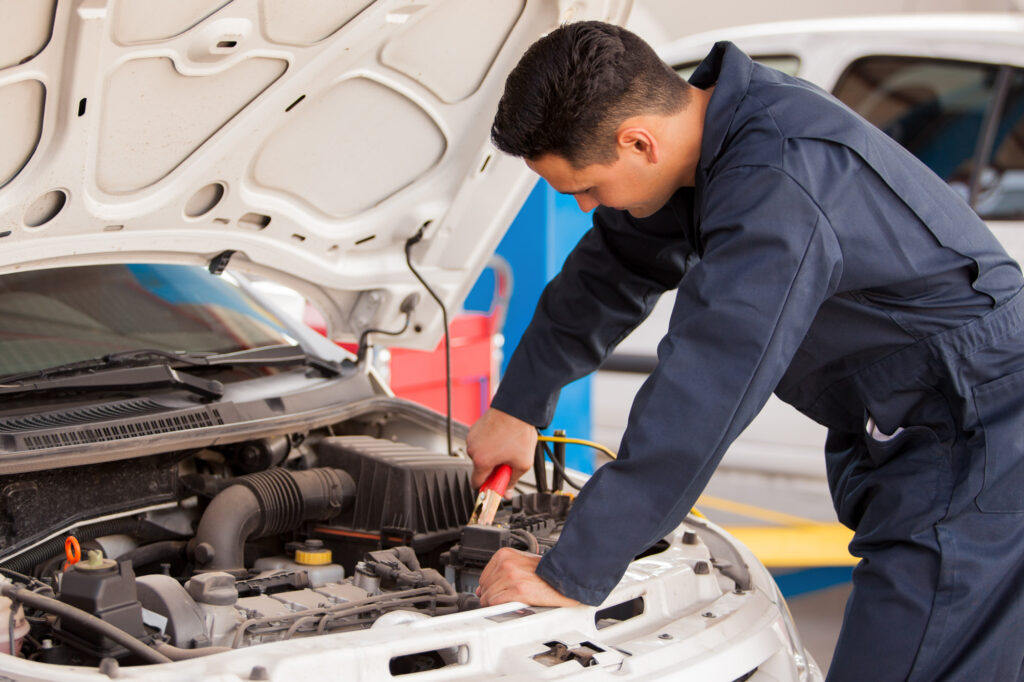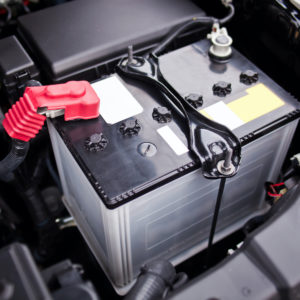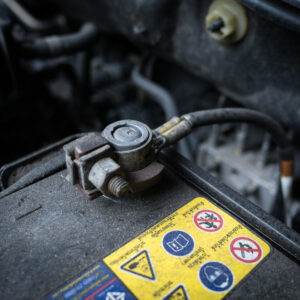Your car battery provides the initial energy needed to start your engine. But over time, it can develop issues like swelling or deformation, which can affect the performance of your vehicle.
Here is some information that could help if you have a swollen or bulging vehicle battery.
Caution: Never work around a car battery without good eye protection that has side shields. Batteries can explode.
Why Is My Car Battery Bulging?
There can be many reasons why your car battery is swelling. Here are some of the most common reasons why this may happen:
Overcharging
Swelling can happen if your battery is overcharged. If your ride’s voltage regulator is faulty, the alternator can produce excessive voltage, leading to overcharging.
Once your battery is overcharged, heat and hydrogen gas can build up fast, causing the outer casing of your battery to bulge or swell.
Extremely Low Temperatures
The electrolyte inside your battery can freeze and expand when temperatures drop below freezing point. This can cause the side of your car battery to bulge because the electrolyte is mostly water and water expands 9 percent by volume when it freezes. In the worst cases, your car battery can crack or rupture.
Severely High Temperature
Warm air can help your car battery function properly. The ideal operating temperature for a battery is 80 degrees Fahrenheit. However, if the battery is heated up too much, there’s always a risk of damage.
This is why many batteries have plastic boxes fitted over them to somewhat insulate them from engine compartment heat. If somebody has removed the plastic box or insulating cover from the battery, it can overheat just from engine heat. Usually you’ll notice a lot of sweating and corrosion on a battery that is running to hot temperature-wise, but overcharging can cause this, too.
Extreme heat can also cause your car battery to swell. That’s because severe heat can increase the chemical reaction within your battery. This can increase gas production, causing your battery to bulge.

Internal Short Circuit
Aside from extreme heat caused by engine overheating or outside temperature, your battery can also heat up and swell due to a short circuit within the battery itself. You’ll usually smell a “rotten egg” smell when this happens. Be very careful: this gas is explosive and when it’s trapped in the battery and an internal spark sets it off, that’s when batteries explode.
Natural Wear
Like any other component inside your engine, your battery ages as your vehicle gains mileage. The battery’s internal structure can weaken, making it vulnerable to damage—including swelling. Of course, not all batteries swell, even when they’re old and worn out, but some do.
A typical car battery can last anywhere between three and five years, but some OEM batteries are guaranteed for 84 months. To maximize its service life, follow your vehicle’s maintenance schedule and have the battery replaced when needed.
Battery Case Damage
Any physical damage to the battery casing or internal battery component can disrupt the operation of the battery, which may lead to swelling. Make sure to have your car battery checked if you’ve recently been involved in a forward collision.
Will a Swollen Car Battery Explode?
Yes. In some cases, a swollen car battery may explode. Swelling is usually caused by gas or heat build-up inside the battery. It’s safe to assume that when a battery swells, an excessive chemical reaction occurs inside it. In the worst cases, the battery can rupture or explode.
Is Fixing a Swollen Car Battery Possible?
There’s a common fix for a car battery that’s swollen because of low temperature. Defrosting the battery and charging it again can sometimes cause the bulge to subside. However, it isn’t recommended. As a matter of fact, unless your circumstances are dire, there is no battery available, and you’re stranded, don’t try this. Just replace the battery.
Swelling is one of the tell-tale signs that your battery needs to be replaced. It is a clear sign that there’s something wrong with its internal components. Do not try to use a swollen car battery to avoid any explosion or damage to any other engine component.
How to Handle a Bulging Car Battery
Swollen batteries can leak harmful chemicals. Always wear protective gear when trying to remove the battery from your vehicle.
If you’re unsure if removing your battery is safe, it’s best to contact a trusted professional. A trained mechanic will know how to inspect and remove a swollen car battery.
How to Prevent Car Battery Bulging

Here are some things you can do to prevent your battery from swelling:
Check the Condition of Your Car Battery
To prevent battery-related issues, you’ll need to make sure that you let a mechanic inspect your battery during routine check-ups. Aside from the battery, it’s important to ensure that all the components of your vehicle’s charging system are in good condition.
Avoid Extreme Heat
Avoid exposing your battery to extreme heat. If you can, park in shaded areas. You can also use insulation kits or plastic shields to protect your battery from the heat.
Buy a High-Quality Battery for Your Vehicle
It will also help to buy a high-quality battery for your ride. These aren’t prone to swelling because they’re designed to withstand extreme temperatures and overcharging. These are usually sold at affordable prices, so you should be able to find one for your ride easily.
Other Tell-tale Signs It’s Time to Replace Your Car Battery
Aside from swelling, here are other signs it’s time to get a battery replacement:
Slow Engine Turnover
If your car has an old battery, it will take longer to start its engine. You’ll have to attempt to start your car many times before you succeed. That’s because your battery can’t hold a charge efficiently anymore.
Rotten Egg Smell
Most vehicles are equipped with a lead-acid battery. When the battery discharges, it produces lead sulfate. This sulfate then reacts with damp air, creating hydrogen sulfide. This can produce an odor similar to a rotten egg, which may be noticeable when you pop the hood.
Activated Check Engine Light
Your check engine light may be triggered by different issues in your vehicle—battery problems included.
However, you can’t conclude that there’s a problem with your battery just because of an illuminated check engine or low battery warning light. You’ll have to retrieve the error code or take your vehicle to an auto repair shop to confirm what’s causing the issue.
Ignoring any warning light can lead to more serious problems down the road. It’s best to have your vehicle inspected by a professional as soon as you suspect a possible problem with your battery.
What to Do After Finding a Replacement Battery
If you were able to find the perfect replacement battery for your vehicle in our collection, it’s only natural that the next step is to order it. Though shipping costs can be quite high, you won’t have to worry about delivery fees if you have a CarParts+ membership.
CarParts+ offers excellent benefits, including free shipping. This means you’ll get easy access to 500,000 unique parts – all of which are ready to be delivered right to your doorstep.
You’ll also get access to other exclusive perks such as VIP Customer Service, 24/7 Roadside Assistance, and Extended Returns. Sign up today to have that extra confidence on the road.
Any information provided on this Website is for informational purposes only and is not intended to replace consultation with a professional mechanic. The accuracy and timeliness of the information may change from the time of publication.































